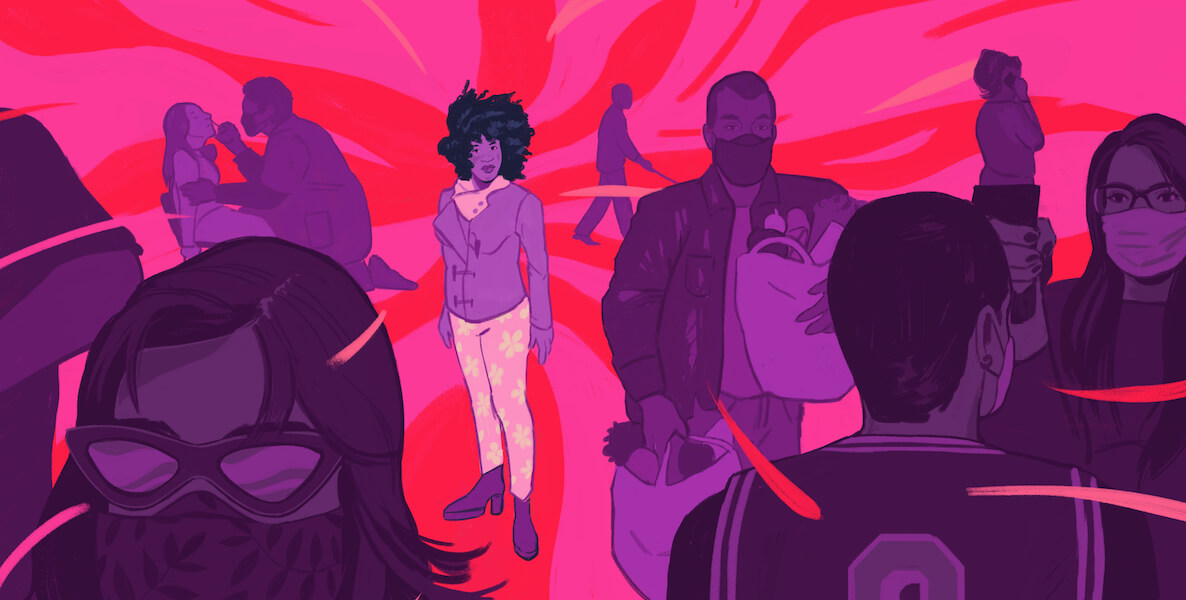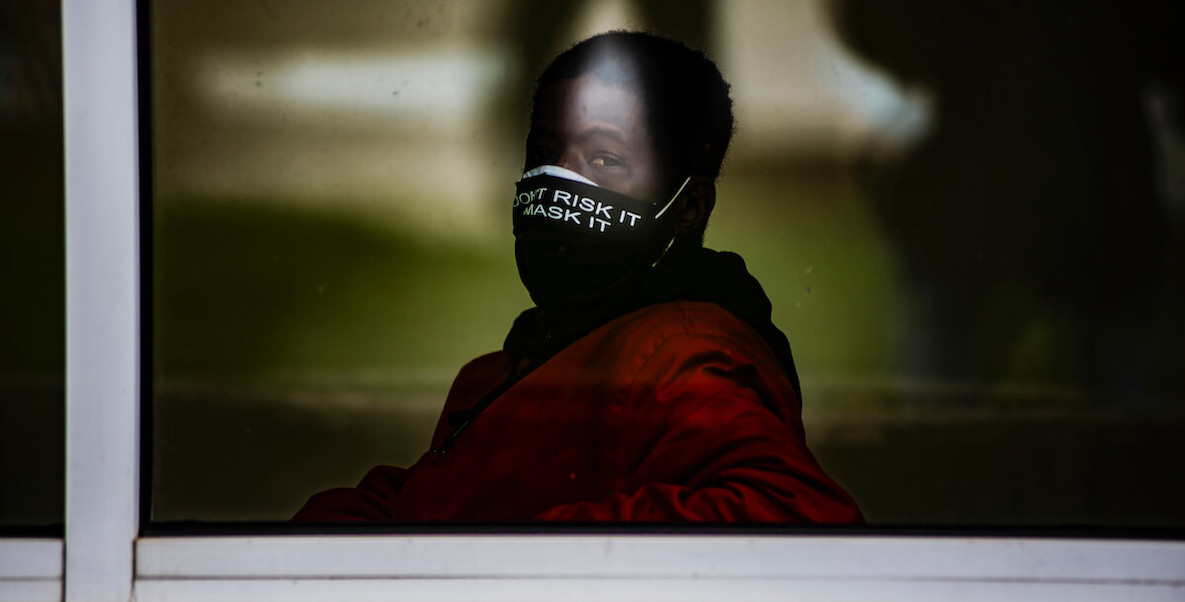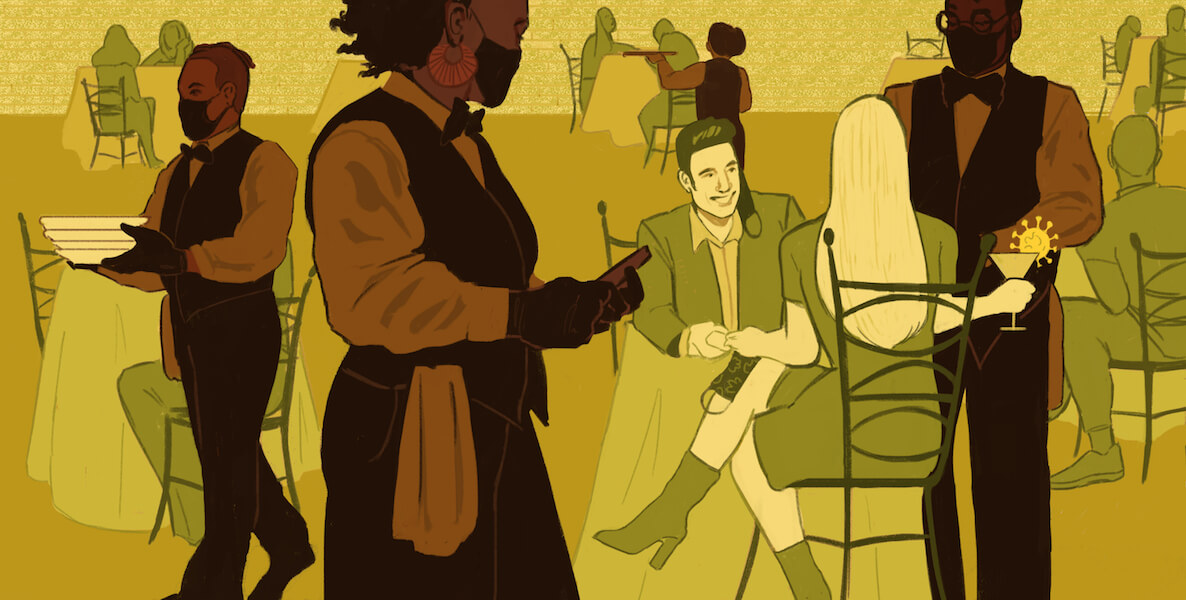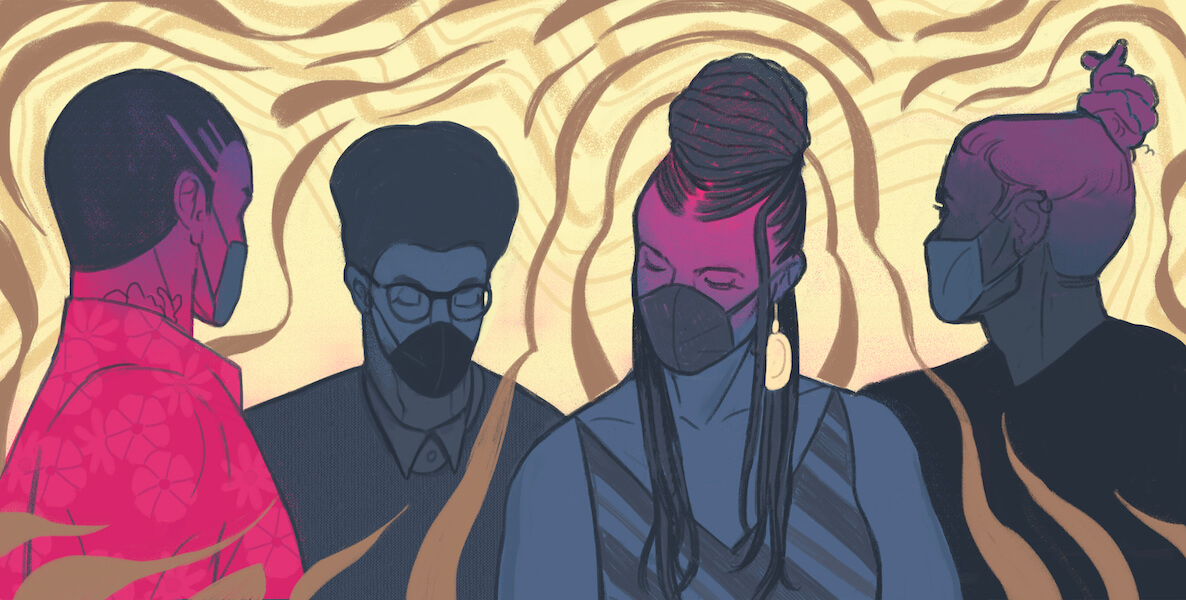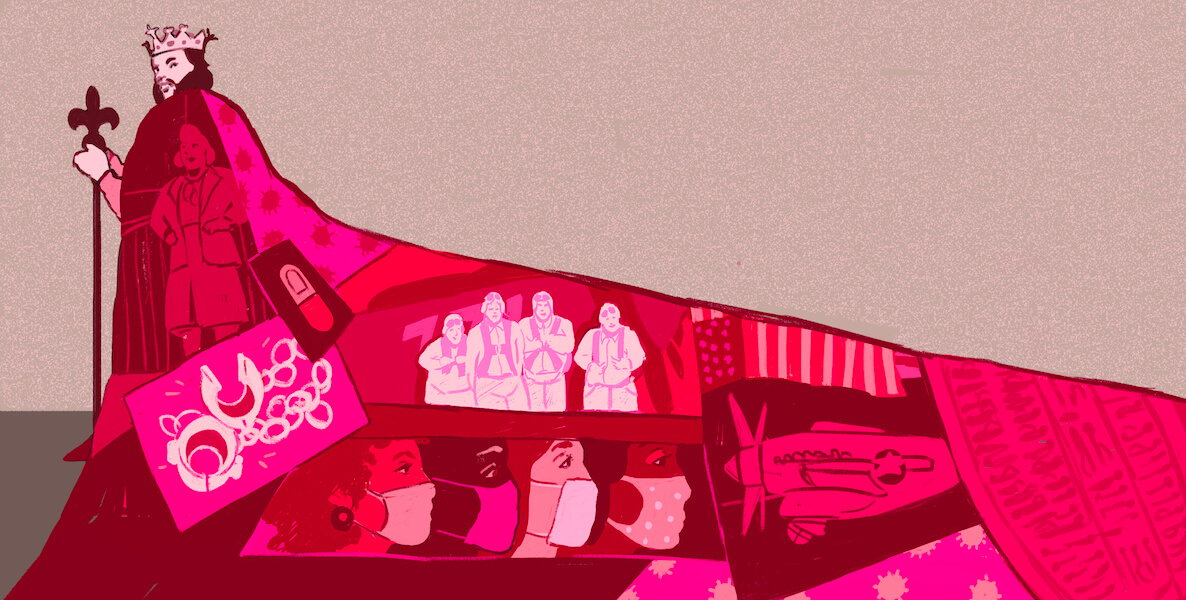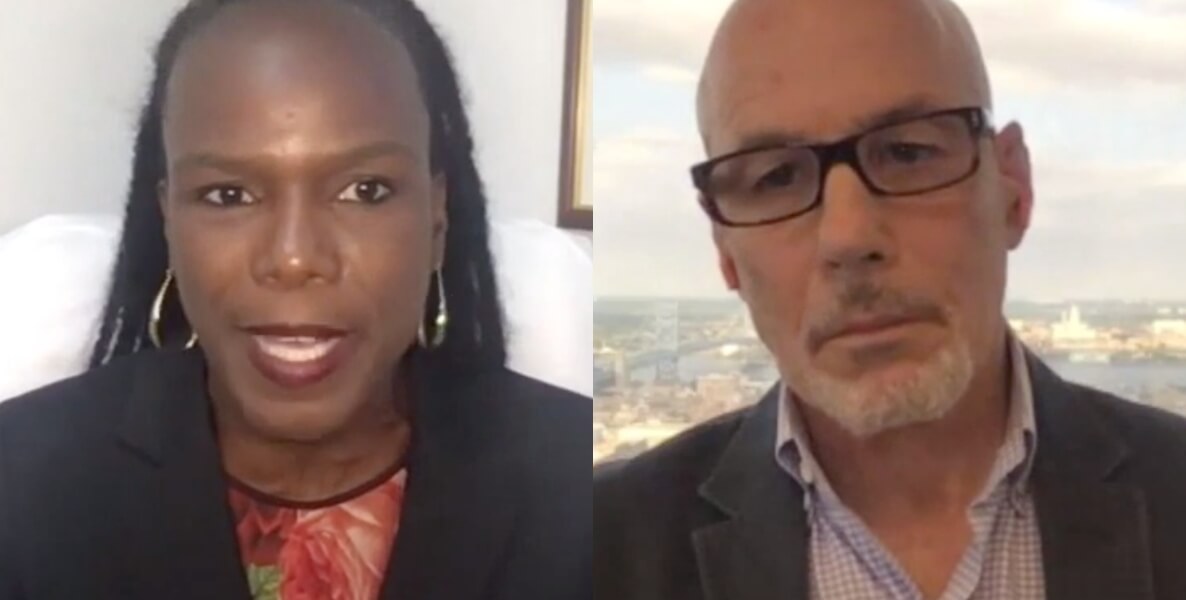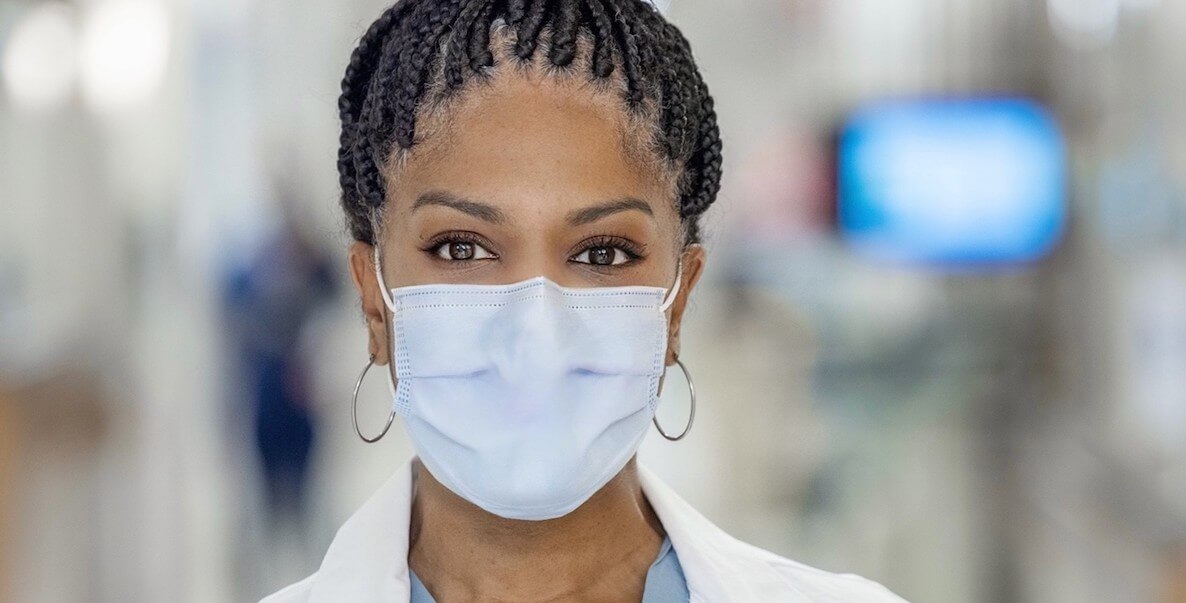![]() According to a new vaccination data tool put together by the Philadelphia Department of Health, white Philadelphians are getting vaccinated at twice the rate of Black residents. As of March 13, 21.9 percent of white citizens in the city had been partially vaccinated, compared to 11.4 percent of Black citizens.
According to a new vaccination data tool put together by the Philadelphia Department of Health, white Philadelphians are getting vaccinated at twice the rate of Black residents. As of March 13, 21.9 percent of white citizens in the city had been partially vaccinated, compared to 11.4 percent of Black citizens.
And, in case you missed this news: Nearly 87 percent of Rite Aid’s 31,100 Philadelphia vaccine doses administered through Feb. 21 went to white customers, and just 4 percent to Black customers. That’s 21 shots for white people for every one shot given to a Black person.
These numbers aren’t all that surprising to Dr. Florencia Greer Polite, associate professor of clinical obstetrics and gynecology and chief of the division of general OB/GYN at Penn’s Perelman School of Medicine. Polite, who is Black, was losing sleep (literally) over fears of these disparities months ago.
She knew that, because of our country’s long history of racism in healthcare—she cites worse survival rates for almost every cancer; delays in treatment for common medical disorders; and the ravaging effects of Covid-19 and its two-to-three-fold increased mortality in the Black community—there was justified reluctance to getting the vaccine, not to mention barriers to access.
One early morning in December, after tossing and turning all night, she penned an op-ed, “COVID-19 Vaccine Acceptance: A Black physician’s plea to the Black community” for The Grio. They ran it, unedited.
I was scared. I was excited. I was nervous. And then on my way to get the vaccine, a feeling of hopefulness came over me, which was really awesome because I hadn’t felt that in a really long time.
Polite’s fears were later confirmed by the numbers in her own place of work: During the first two weeks of vaccine rollout at Penn Medicine, just 22 percent of eligible Black employees, compared with 62 percent of eligible white employees, got vaccinated or signed up to receive the shot.
After talking with leaders at the Hospital of the University of Pennsylvania (HUP) about the problem—and potential solutions—Polite had another early morning idea: Operation CAVEAT: COVID Acceptance Vaccine Education and Adoption Taskforce. Along with Dr. Eugenia South, assistant professor of emergency medicine at Penn’s Perelman School of Medicine, and other colleagues, she rolled out a three-part program to educate and remove barriers for Black staff members to get vaccinated.
“As Black leaders at Penn Medicine, we recognized our unique position to address our community directly: to own the past mistakes of the medical profession, acknowledge present-day racism in healthcare and offer an opportunity for conversation about the vaccine with trusted messengers,” Dr. Polite and Dr. South wrote in an op-ed for The Los Angeles Times.
And their approach is making an impact. As of March 18, about 45 percent of eligible Black staff and 75 percent of white staff at Penn Medicine got vaccinated or signed up to receive the shot. That’s a 10 percent decrease in the disparity—no small feat, considering.
We talked with Dr. Polite to learn more about Operation CAVEAT’s effective strategies—and what anti-racism looks like in medicine during the pandemic and beyond.
Katherine Rapin: First, can you talk about your own experience—what was your deliberation around getting the vaccine?
Dr. Florencia Greer Polite: I was pretty sure that I would be waiting to get it. I am not somebody who feels the need to be rushed into a process, that’s just how I am.
I was on a couple of calls with some white colleagues who were saying that they were going to be fully comfortable getting it as soon as possible. And I just decided then, in that moment, that I was going to be a leader and help to decrease the disparity in vaccine access and hesitancy. I knew that there would be folks like me in the Black community, who would also want to wait, and measured that against this idea that we were already dying at higher rates.
I agreed to get it on the first day that it was available to Penn. I was scared. I was excited. I was nervous. And then on my way to get the vaccine, a feeling of hopefulness came over me, which was really awesome because I hadn’t felt that in a really long time. I just started to think, we have the opportunity in medicine, specifically as Black leaders and Black doctors who have access to this vaccine—to make this what Tuskegee wasn’t. We can literally be able to say, Here we are, trust us, because we’ve actually done it.
It was the making of a little vaccine advocacy moment, and now I’m one of the Penn poster children for the vaccine.
KR: I want to talk about the issue that you are now working so hard to address as a “poster child.” We know there’s this history, and current reality, of racism and health care that impacts Black communities–what were you seeing and hearing at Penn that prompted your decision to take action?
FGP: So first off, Katherine, I would challenge you by saying that not everybody does agree that systemic racism exists. I mean, there’s a JAMA [Journal of the American Medical Association] podcast that just came out, that says, Doctors are not racist, thus you can not have racism in medicine. So, we are not on all the same page about where in medicine we haven’t been and where we’re going.
I knew that Penn was having trouble getting members of the custodial services to get vaccinated, members of dietary [food service], who are literally in harm’s way every day because they’re going into the rooms of Covid patients.
We were hearing all types of things that made sense to me, like This [vaccine] happened under the Trump administration, which made racism its mantra. The perception of how quickly it happened was a problem: Did they maybe skip some steps that could have been important? Were we actually thought about in the vaccine process? Were we involved in the clinical trials? There’s this [conspiracy] theory that the coronavirus in general was put out there to do some sort of eugenics-type experimentation, so was the vaccine, like, part of that too?
RELATED FROM THE CITIZEN
James Peterson offers a deep dive into understanding the rise of Covid-19 conspiracy thinking in the Black community. Ever hear of the “King Alfred Plan”?
The idea of it coming under the Trump administration is something that I think is hard to to easily dispel, especially when you think about January the sixth.
But what I experienced when I went to go get vaccinated, and what I have seen not long after that at Penn, was that we had the opportunity to educate. And it seemed even more important that we educated and tried to address hesitancy in the people who actually had access to the vaccine. The reason to work on them is also that they can then be conduits to the community—they can go into their own neighborhoods and say, Hey, I got it—I’m good; I’m safe.
KR: So that brings me to your project. Tell me about Operation CAVEAT—the strategies that you used and how you developed the approach.
FGP: I reached out to HUP’s Chief Medical Officer, Neil Fishman, who has been an ally from the very beginning, and I said I would really like to help with what seems to me to be a problem that Penn would have—just like any hospital system in the country would have—which is this idea that if Black people in general were having some hesitancy, our healthcare workers who were being exposed are the ones that we could really address it with.
The whole world had their awakening. But just be clear, every leader at every hospital has not actually had a commitment to anti-racism.
He said, Absolutely, we are experiencing that. He put me in touch with Aron Berman, the assistant executive hospital director of HUP, who’s essentially responsible for all of the groups that I’m talking about—environmental, dietary, patient transport and materials management (people who clean implements and things like that).
He told me that dietary and transport had more than 75 percent Black people and materials management and patient transport had more than 50 percent Black staff. He said we are not having them sign up in the way that we would like some of these groups we know to be at risk.
And so I just had these super frank conversations with Neil Fishman and Aron Berman, who are both white men. I said, Let’s just talk, frankly, about race and what you think would help. And we talked about the barriers that were already inherent in the system. Like, for instance, these groups are not really on the Penn email [because many work for outside contractors], so a lot of the information that Penn has been sending out about how safe the vaccine is, how you can sign up, doesn’t even go to them.
And then we talked about who they would want to hear from. And I said, Aron I’m hearing two different things from people in the hospital: I’m hearing from the Black leaders that people want to hear from us; I’m hearing from the white doctors that it doesn’t really matter as long as it’s a trusted voice; and I’d like your opinion: With your staff, what do you think they want? He said, They want to hear from you guys. And I said, Then that’s what it will be. We will make sure that we address it and that we are putting race at the forefront.
So it was a three-part initiative. The first part was the one-pager that says here’s why we, a group of Black doctors at Penn Medicine, agreed to get vaccinated, understanding you might be hesitant. So there’s a picture of each of us actually getting our vaccines, and then on the bottom are facts from the CDC [Centers for Disease Control] to address the most common myths.
That document was handed out in an envelope to every member of the staff that I mentioned, with their signup sheet for the Covid vaccine from the hospital, because we know that they weren’t necessarily doing the electronic sign up.
We talked to the vaccine Center at Penn and basically said if anyone in our target groups shows up to get vaccinated without an appointment, the answer is yes. We’re not going to impose another barrier.
The second part, we wanted screensavers with the same thing: a picture of [a Black Penn doctor] getting vaccinated, with the reason for making the decision, interspersed with information from the CDC. We wanted to have hundreds of Black providers—when you first saw the screensavers you would think Penn was a Black hospital.
The original plan of the screensavers though was that they would just be in the break rooms—where [targeted staff] clock in and clock out. One of the leaders from the hospital put me in touch with PR and she said have them help you work on these screensavers. And then [hospital leaders] decided that they would actually run throughout the hospital, which is awesome.
There are not that many Black attendings who are there [at HUP], and like all of us are on the screensavers—and the point of that was we wanted to be over-represented. So every day that I come in, I see one of my friends on the screensaver. And you’re constantly being inundated with this information like I chose to get the vaccine and I think it’s safe.
And then the third part was “huddles,” the three to four times a day that these groups meet with their supervisors to go over what they would normally go over. We would have two providers—we made a decision that at least one had to be Black—go to one of their huddles and talk to them, and the goal was simply to answer their questions about the vaccine. No pre-printed material, no scripts—whatever questions you have to get answered.
We videoed three of them, that are available to be rewatched in those same spaces.
And then at the end of the week, we ended with the anti-racism town hall that I moderated with Neil Fishman, our CMO, presenting information about the vaccine. We had four Black staff members, talking about their experiences with the vaccine and they were intentionally chosen to not represent a monolithic experience. So we had an LPN in the OB/GYN clinics; a head chef from HUP dining; an HR guru who was on the anti-racism committee with me; and only one doctor, intentionally, who is an anesthesiologist from Chicago.
I was the moderator of that panel, which was attended by over 700 attendees, geared towards Black and brown people. We ended the week with that, and decided that we didn’t need to do any more huddles because we wanted to make sure that coercion was not a word that would be used to describe this. We felt like we have given them enough opportunities to hear and to know that there are people in the hospital of all races they could come to if they had a question. Penn made up these buttons, which I love, that say, Ask me about the Covid vaccine.
KR: So tell me about the response—what has the impact been?
FGP: Impact really is, are people getting vaccinated? You could say that is the ultimate outcome, but really the outcome of these initiatives is education to the community, education about the vaccine. It’s hard to measure because we’re doing all these things simultaneously and oftentimes it’s hard for people to say, This is the one thing that was the most impactful, because often these are things that hit them over a period of days and weeks.
There’s a couple of things that have come out of doing CAVEAT though. People have reached out to me [from other hospitals] and one of the most common questions is, How did you guys get your data? And did you have to identify that you were Black or white when you got the vaccine? My answer to that is always a little bit of a chuckle first—all hospital systems have data. They all know the demographics of who works there, they all know and can track, who’s gotten vaccinated, in their health care systems. The issue is very few people [leading healthcare systems] are comfortable publishing their data, because there’s usually a disparity in the numbers between Black and white, and they feel like it poorly reflects on them, instead of just acknowledging that the disparity exists.
It’s not a reflection on any system. What the reflection on your system is, are you doing something about said disparity? It’s everywhere, and I’m not blaming anybody for it. I’m just saying, Can we do something about it?
I tell people this is like turning the Titanic around; it took us 400 years to get here, it’s not going to take us months to get back. It’s going to be continual small intentional acts that get us to be in a place where we want to be.
When I talked to Aron, I knew immediately that I had a partner who got it. That conversation from the very beginning was so authentic, that I was like, we’re gonna make a huge impact in this initiative. Because in order to have these discussions about race, you have to have somebody who’s willing to have the hard discussions—to say the word race and racism, and who really cares about their staff and not about their own ego or anything else.
KR: You mentioned folks from other hospitals reaching out—have you talked to people who are trying to replicate what you have done in other places?
FGP: Yeah, I would send them this template of what we’re doing. People had not actually thought of doing a one-pager for Black folks at their hospital. There are a bunch of people who said, We’ve tried certain aspects of things that we think we might retry, like we tried to town hall, but I could see now like you all had one that was really effective—we might try to do another one, and adjust the folks. I don’t know who exactly is going to—there’s the “I’m thinking about it” versus “I have the ability to.”
One of the things that has been on my mind is this is almost an imperative for me, because I am somebody who is actually capable of having a voice at my institution. I’m the chief of a division; I’m considered a leader in this healthcare system. There are a ton of people who are concerned about these issues in other healthcare systems, but don’t necessarily have the ear of a CMO or a CEO who can say, I’m just going to make this happen. So when we think about the barriers, that’s one of them.
I actually think with our leadership, we have people who don’t want to just give lip service to being an anti-racist institution. I went to Penn Med School from ‘98 to ‘02, and then I left for 16 years and in 2018, I was recruited back here to be the chief of the division. The Penn that I came back to in 2018 wasn’t that different from the Penn I left in 2002. But the Penn that I’m in right now in 2021 is different from the Penn in 2018.
RELATED FROM THE CITIZEN
Penn Medicine’s Chief Innovation Officer, Roy Rosin, talked about solving problems by asking “how” not “can” at a recent Citizen event.
That’s for a lot of reasons, like the whole world had their awakening. But just be clear, every leader at every hospital has not actually had a commitment to anti-racism.
That’s what was so powerful to me about hearing our CMO, at an Ivy League institution, say, Systemic racism is the reason why my Black and brown brothers are dying, at two to three times the rate—it’s not race, it’s racism. He wasn’t just saying that to the Black and brown participants; he was saying that to all the doctors who are on the line, some of whom are white doctors and that may not be what they actually think, so he’s educating everybody.
And we have the perspective of our CEO, who after our kneel for George Floyd stated a re-commitment to Penn being a leader in the anti-racist space as much as we are in the clinical care and research space.
So one of the things that will stop a lot of people from actually putting this into place is that people don’t always have the support of their leadership, and this initiative is one that requires the support of your leadership. The time, the effort, the resources—it’s all of that.
KR: I know some of the change you’re talking about is due to the recently-formed CPUP [The Clinical Practices of the University of Pennsylvania] Committee on Anti-Racism, which you’re a part of. Can you talk about its work thus far and vision going forward?
FGP: It’s an amazing conglomeration of physicians, staff and HR. This is the first time this space has been created, so we had to spend the first few months coming up with a mission statement and deciding, what do we want to focus on? The speaker series is definitely one thing. The Town Hall was our first big event and, by all means, was considered really successful. We just had a Dr. Utibe R. Essien from Pittsburgh run a “How to Sustain an Anti-Racism Agenda in Medicine” discussion. We broke the participants into small groups, and the small groups had the vice chairs of inclusion diversity and equity—which were also created since George Floyd—run the small groups and we talked specifically about how we can sustain anti-racism at Penn medicine. The goal is to take those comments and think about what we want to present to our CEO as our next set of initiatives.
So it really is about taking this work and saying, What does it look like if we consider ourselves to be leaders in anti-racism? I tell people this is like turning the Titanic around; it took us 400 years to get here, it’s not going to take us months to get back. It’s going to be continual small intentional acts that get us to be in a place where we want to be.
RELATED FROM THE CITIZEN
Michelle Harper, ER doctor and best-selling author, shared what it means to break—and to heal—on the frontlines of medicine at a recent Citizen event.
The next piece we are looking at is, what are the metrics by which we want to measure a successful anti-racism experience at Penn medicine, and how do we hold our leaders accountable? So I’m on the committee to look at that in terms of education, patient care research, retention of faculty. What are the metrics by which we would say we have had a successful impact? And how do we test those metrics and follow up?
KR: So back to CAVEAT, what does your work look like now that more of us have access to the vaccine?
FGP: Yeah, so I think right now where we are, is that we have what I call the three-headed beast: We still have Black and brown communities dying at higher rates; we have hesitancy among the people who do have access; and then we have access issues with people who actually want the vaccine.
There are a bunch of us who are out there doing the advocacy work in terms of hesitancy; now, most of us have a routine PowerPoint that we go to. I’ve done Broad Street Ministries, I did a fraternity alumni event for their community service—a lot of them are church events and the Black clergy is hugely influential in the Black community.
A woman in my office, whose clergyman told her not to get the vaccine, she’s coming to Penn every day and hearing all of us talk about the vaccine and vaccine safety. And so she talked about the influence that we’ve had on her and the impact of one-on-one conversations. Before her second shot, she was starting to get more nervous about it, and she was rewatching Gina South on CNN, literally on her office computer, to calm her down and remind her why it was necessary and remind her why she was going to be safe, but she had to do this.
KR: Lastly, now that you received your second shot, I want to hear how you’re feeling. Has it changed your outlook, your mindset, the way you’re living your life right now?
FGP: I’m the only person in my family who’s received all my shots, so there’s nothing palpable that it changes—I’m still masking, I’m still social distancing. But I know what I’m most excited about: hugs, vacation and eating in restaurants again.
This interview has been edited and condensed.
HOW YOU CAN TAKE ACTION
Get schooled on all things vaccine so you’ll have answers for anyone who’s skeptical about getting the vaccine
- Penn’s 30-slide power point screensaver offers myth-busting facts and personal testimonies
- This Cleveland clinic YouTube video does some vaccine myth-busting of its own
- Dear Pandemic offers sound advice to anyone who’s scared to get the vaccine
- NPR’s Short Wave science podcast doles out the CDC’s dos and don’s for fully vaccinated people



